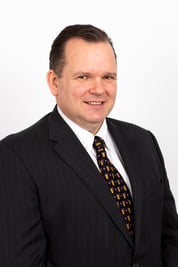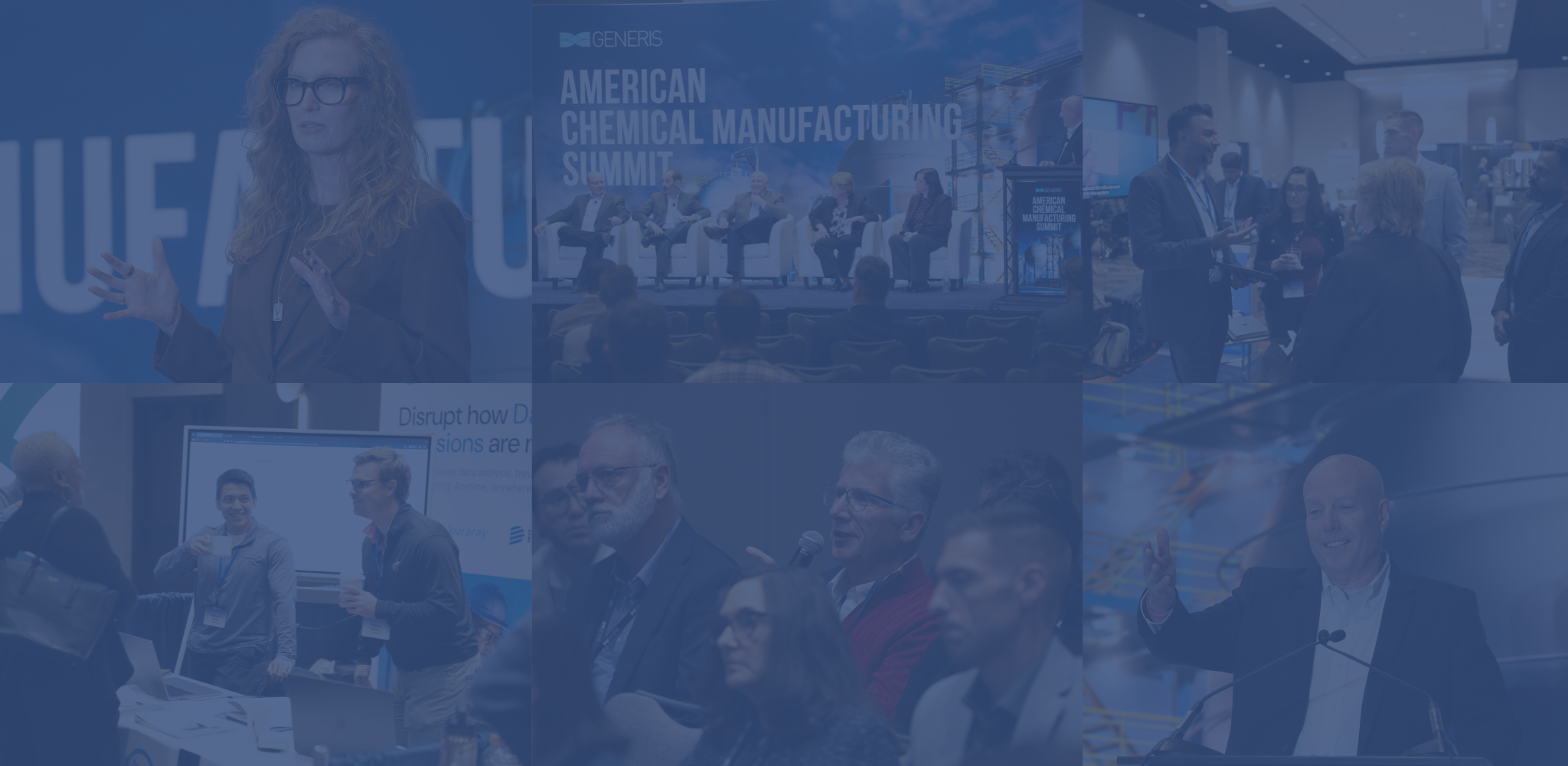A Frank Discussion on Economic Operators and How Maetrics Can Lead, Guide and Support Compliance Teams
Ahead of the American Medical Device Summit, we spoke with Peter Rose to discuss economic operators, how Maetrics can guide compliance teams, and what steps manufacturers need to take.
The new EU MDR elevates the importance of “economic operators”. Can you please give us the definition of an economic operator, in your own words?
Economic operators are Manufacturers, Authorised Representatives, Importers and Distributors (MAID). The definitions of each economic operator in Article 2 of the regulation are very well written so I always refer to them but in very broad terms, an economic operator is any organization involved in the sale or distribution of devices.
How does the new EU MDR affect each economic operator within the supply chain as a medical device goes to market?
Though Manufacturers retain the majority of their responsibilities, Importers, Distributors and Authorised Representatives must all verify the reliability of the manufacturer.
These organizations now have a legal responsibility to ensure that the medical devices they distribute are not counterfeit and have an authentic CE mark. Simply asking manufacturers for a copy of their certificate is not enough but this is what most organizations do. What they should do is verify the accuracy of the documentation provided and ensure that it has not been forged. They can do so by approaching the notified body which issued the certificate and check that the certificate number exists and belongs to the manufacturer under review. The scope of the certificate should also be confirmed, in case the certificate is otherwise genuine, but does not cover the type of device that is being distributed.
What does the EU MDR require of economic operators?
Article 10 outlines requirements for Manufacturers, articles 11 and 12 for Authorised Representatives, article 13 for Importers and article 14 for Distributors. Manufacturers have all the same responsibilities they were used to under the medical device directives but in addition, they will have to: register with EUDAMED and get a Single Registration Number (SRN); generate and register Unique Device Identifiers (UDIs); create post-market surveillance plans. The latter was considered best practice in the past but is now a definitive requirement.
For Manufacturers and Authorised Representatives, there is a new concept, which is the Person Responsible for Regulatory Compliance (PRRC). This requirement isn’t likely to affect larger companies as it is inconceivable that they wouldn’t have had such a person already but it will certainly be a new obligation for smaller companies and organizations that are uniquely Authorised Representatives. Authorized Representatives must now have a PRRC; they may ask manufacturers to provide this service but they will need to have this person available at their disposal at all times.
Like Authorised Representatives, Importers are responsible for verifying the legitimacy of the manufacturers they work with, and they have specific obligations relating to non-conforming products, product recalls and vigilance incidents. In the past, it was best practice for Distributors to commit to reporting incidents to Manufacturers within their distributor agreements. This has now become a requirement, while the time scale for reporting vigilance incidents has been drastically cut to 15 days instead of 30. For public health issues, where the risks are particularly serious or large numbers of people are likely to be adversely affected, the reporting deadline is 3 days. EOs are going to have to review their systems and processes to make sure that they can meet reporting deadlines. In my experience, it takes most companies about 30 days just to go through their current processes, so cutting down reporting time by half is not going to be easy.

What are the services that Maetrics can provide to support MDR implementation and management? How does Maetrics guide compliance through all stages of manufacturing for medical device companies?
Our services are very flexible and depend on client needs. At one end of the spectrum, we can provide a team to carry out a gap analysis of technical files, quality systems, and MDR preparation. We then work with companies to find solutions to the problems identified. These solutions are developed and implemented to achieve full compliance. We can also liaise with notified bodies to try and arrange for various audits to be carried out in time. With regard to EOs in particular, we can send a specialist team into any EO to help them to understand and implement systems for their specific obligations.
At the opposite end of the spectrum, we can be a knowledge resource, meaning that we visit businesses and run training events around specific topics. This also provides regulatory professionals with the opportunity to ask us questions so it is very helpful for companies that are generally knowledgeable but need additional guidance in some areas. In these cases, we can provide a report containing practical advice from one of our experts. We can also tailor training for different business units at various levels, to ensure colleagues are fully aware of the new regulatory expectations, processes, and procedures that are required. Having everyone on the same page is key to effective compliance implementation across the business.
Many companies are struggling to source compliance professionals so we can provide project managers or supply extra staff as needed. In short, we can lead, we can guide, and we can follow!
What advice do you have for companies preparing for the new EU MDR?
If they haven’t started preparations, they have got to start today. There are currently no legal mechanisms for a deadline extension so my advice to businesses is not to delay. Time is incredibly short and the first thing that they have to do is find an EU27 notified body. As the outcome of Brexit remains uncertain, businesses should be cautious or at least have a contingency if using a UK notified body. There are currently only 5 notified bodies that have been designated under MDR and none for IVDR. The notified body capacity issue is real and a major cause for concern; companies that are not in the queue and can’t get a CE mark in time simply won’t be able to keep their products on the market.
Your session topic at the American Medical Device Summit 2019 will focus on EU MDR compliance and economic operators. What is one key takeaway you want to leave attendees with?
I want to make it clear that manufacturers will need to help economic operators (EOs) to understand their new obligations under the EU MDR. Authorized Representatives should have at least a basic understanding of the impact of the regulation but Importers and Distributors are largely unaware of the new requirements. The majority of EOs will, therefore, need advice and practical support from manufacturers, and they must also plan for the additional costs and resources required to achieve compliance. For their part, manufacturers should also prepare for the financial impact on their businesses. Not only will they have to invest time in bringing other EOs up to speed, they may find that their agreements with Distributors and Importers are affected as these organizations look to recover their new expenses.
About Peter Rose, Managing Director, Europe

Peter Rose is a Managing Director and Practice Leader for Maetrics operations in Europe. Having worked in the medical device industry for 25 years, Mr. Rose has a wealth of experience and knowledge in quality systems and regulatory affairs. He is a lead auditor and a qualified microbiologist, as well as our in-house sterilization expert.
Peter has been recognized for his expertise on the new EU MDR and IVDR regulations and sits on the ABHI MDR Implementation Working Group. He also sits on the MHRA Medical Device Industry Liaison Group and ABHI Technical Policy Committee. Our clients and the industry as a whole have directly benefited from his dedication to sharing best-practice and knowledge on these new regulations. He has developed white papers, delivered client consultations, been involved in European Union parliamentary roundtable engagements, and regularly shares insights at industry events.
Maetrics focuses exclusively on compliance strategies for life sciences companies. Since founding in 1984, the or have remained up-to-date on the changing standards for the biotech, pharmaceutical, diagnostics, and medical device fields. Through their insights and experience, they enable organizations to achieve compliance while remaining competitive and profitable.
Maetrics’ consulting services provide more than a theoretical approach to regulatory standards. They deliver actionable, practical, and realistic strategies designed to fit a client’s needs. Maetrics’ team of industry leaders work in collaboration with our clients to implement business, quality, and compliance solutions.
To learn more, visit the Maetrics website or the American Medical Device Summit agenda.
%20(1).png?width=773&height=112&name=Generis%20Logo%20full%20Colour%20(Large)%20(1).png)

.png)
-2.png)
